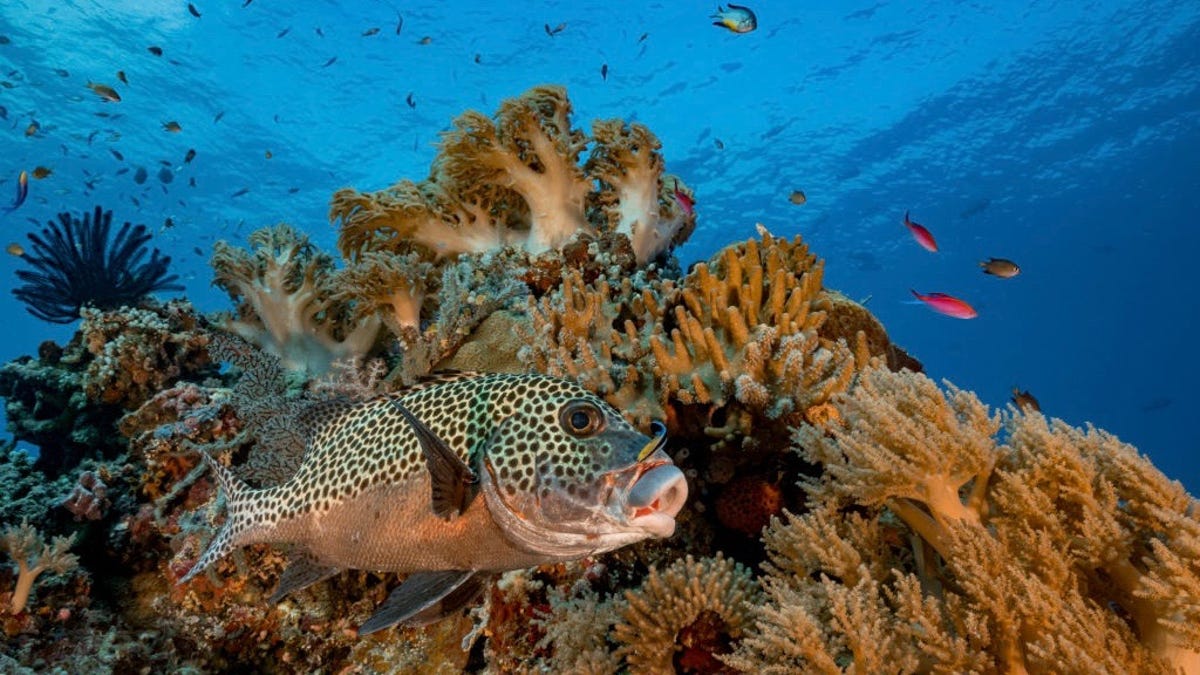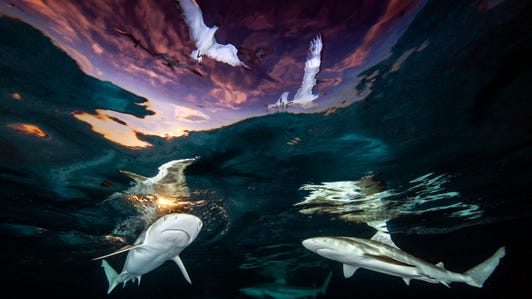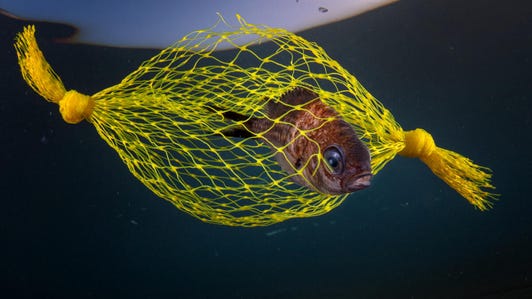
A cleaner fish cleans a larger fish swimming in front of a reef in the Philippines. A new study suggests the smaller species (seen here to the right of the bigger fish’s eye) might recognize themselves in photos and mirrors.
Alexis Rosenfeld/Getty Images
Fish may not be so photo-savvy they’re out there snapping selfies while swimming, but new research shows some of them, at least, can recognize themselves in photographs and mirrors. A study published Monday in the Proceedings of the National Academy of Sciences tested cleaner fish (labroides dimidiatus), and the results suggest the fish might possess a self-awareness previously thought limited to humans and animals such as chimpanzees.
The research involved scientists from Osaka City University in Japan and the University of Neuchatel in Switzerland. They exposed the small fish to the creatures’ own images in a mirror, then marked the fish to see if they’d recognize the stamped image and try to touch the mark.
Fish that hadn’t passed this mirror test frequently attacked photographs of themselves and strangers. However, cleaner fish who passed the mirror test then were able to distinguish their own faces from those of other cleaner fish in photographs, and their aggression declined in response. They remained aggressive toward unfamiliar fish in photos, as well as when presented with a composite photo that put a different fish’s head on their body.
“Humans are also capable of having a mental image of the self-face, which is considered an example of private self-awareness,” the scientists wrote. “We demonstrate that combining mirror test experiments with photographs has enormous potential to further our understanding of the evolution of cognitive processes and private self-awareness across nonhuman animals.”
Mirror self-recognition in non-humans was first observed in chimpanzees, and has also been seen in great apes, Asian elephants, dolphins, horses and magpies.
“The ability to recognize faces and then adjust behavior accordingly (e.g. friendly or aggressively) suggests that cleaner fish have the capacity for private self-awareness and mental states associated with mental images of self-face and self-motivation,” the scientists wrote.
The scientists plan additional experiments with both the cleaner fish and another species, the three-spined stickleback (gasterosteus aculeatus), according to Science News. Say cheese, fishy!
Sharks, shipwrecks and a lake full of jellyfish dazzle in underwater photo contest






+25 more
See all photos
